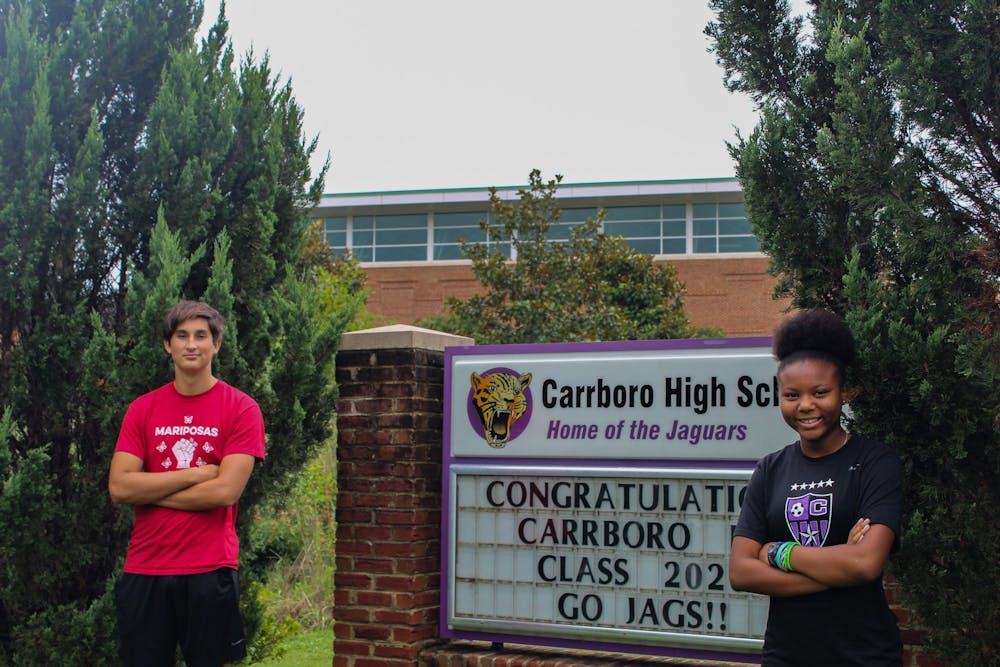A coalition of minority students at Carrboro High School debuted the first episode of a podcast series that features anonymous students providing firsthand experiences of living through the COVID-19 pandemic.
Senior Phoenix Tudryn, a member of Carrboro High School’s Black & Brown Student Coalition and one of the founders of the podcast, said the podcast was created primarily for teachers. He said he hopes that by hearing the personal experiences of Black and brown students, teachers can better prepare themselves to support students when school starts.
“The whole point of the podcast was to let students give input on what teachers can do to be better so that staff can adjust curriculum,” Tudryn said. “Teachers are trying to craft a way to support their students and their mental health, but it’s really hard to do that if you don’t understand what students have been through.”
The coalition hopes the podcast will elevate the voices of students who do not typically have a say in the decisions made by Carrboro High School’s administration.
Senior Julian Taylor, also a member of the coalition, said communication between the administration and students is dominated by white student groups.
“The ways that our teachers and administrators listen to our students at Carrboro doesn’t represent the population of our school,” Taylor said. “Our school is more than 40 percent students of color, but most student groups that have a big say in things — like student council and student government — are almost entirely white.”
Tiffany Boston, a high school equity specialist for Chapel Hill-Carrboro City Schools, met with members of the Black & Brown Student Coalition during the planning stages of the podcast. She emphasized that providing Black and brown students with a voice and listening to their input is necessary to create beneficial changes in schools.
“A lot of decisions are made for students but without student input," Boston said. "Students are the ones that keep schools going, so to not listen to what they need would be doing them a disservice. If we truly want to reform our schools based on our students' needs, then it is going to take elevating the student voice.
"This podcast is a phenomenal way to start that movement.”




